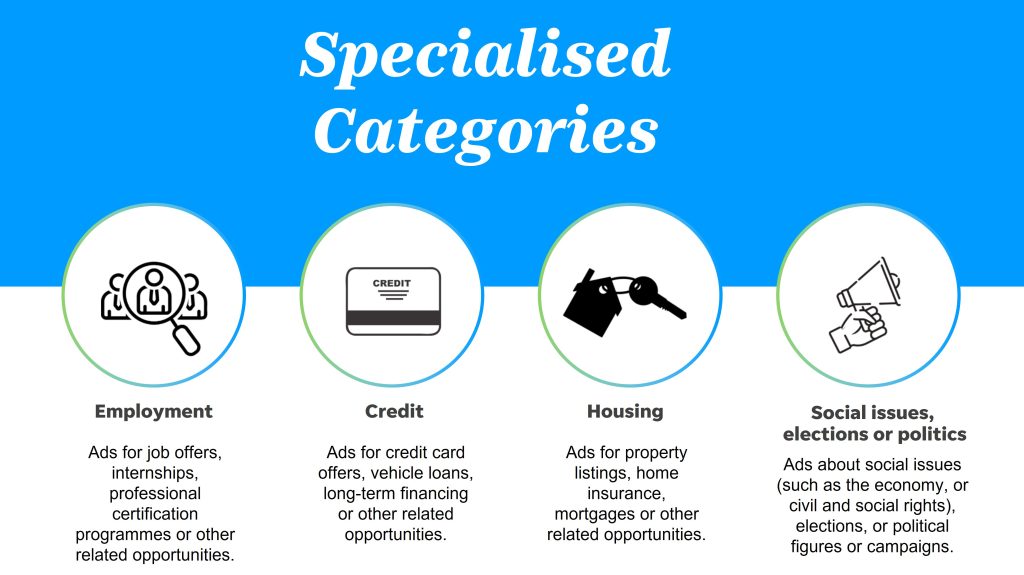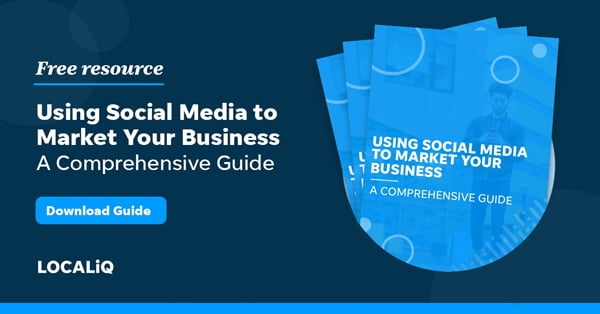Facebook (Meta) has changed how advertisers can use Facebook. From March, advertisers can no longer target their audiences using certain specialised categories. But what exactly are these categories, and will they change the fundamental way Facebook advertising works? We uncover everything that is changing in this article and advise on how to work within the new parameters.
How is Facebook Advertising Changing?
While these changes began in January 2022, from mid-March, Meta has stated that Facebook and Instagram will no longer allow advertisers to advertise using certain specialised categories. These include:
- Health
- Race
- Ethnicity
- Sexual Orientation
- Political Beliefs
- Religion
While these are broad categories, here is a more comprehensive breakdown:
- Health causes – These can include targeting such as World Diabetes Day, chemotherapy, cancer, etc.
- LGBT+ cultures – These can include any cultures and sub-cultures around this topic, for example, same-sex marriage.
- Religious practices and groups – You can no longer search for terms such as “Catholic Church,” “Jewish holidays” or “Eid”.
- Political beliefs, social issues, causes, organizations, and figures – This covers all political parties.
Facebook has stated that if your targeted ads contain any of the above terms, then you will receive the following message: “Error code 100, sub code 18157520: Cannot Use Invalid Detailed Targeting Options: Some of Your Detailed Targeting Options Have Been Removed: This ad set includes detailed targeting options that are either no longer available or unavailable when excluding people from an audience. You may need to remove items from your ad set or confirm the changes to turn it back on.”
Facebook believes that this change will prevent firms from abusing targeted and marginalised topics. Graham Rudd VP of Products and services in a blog wrote “It is important to note that the interest targeting options we are removing are not based on people’s physical characteristics or personal attributes, but instead on things like people’s interactions with content on our platform” It is worthy to note that advertisers can still segment and target audiences based on age, gender, occupation, and location.
While these changes can have a positive effect on the end-user, in that they are not targeted because of a specific characteristic, there is also a negative aspect for them. Local and national support groups will have to navigate the landscape further to reach their target audience (for example, someone who has a recent diagnosis of Diabetes and needs to understand their diagnosis.)
How can you Create a Targeted ad on Facebook?
For a substantial proportion of ad managers, there needs to be significant changes to the way they run existing campaigns.
If a current ad campaign has one of these new protected topics, Facebook will either remove it or update the campaign. However, if you exclude a term, the ad manager will pause the campaign and you will need to update them manually.
There are several types of audience you can create:
- Engagement Custom Audience – This target set will help you reach people who are engaged with your page. This can include them liking, commenting, or sharing a post/video that you have made. If you have run a lead gen campaign, this audience will include anyone who has opened your link or form. This audience has already shown an interest in your brand and is engaged with it. You can select how long you want to go back with their interaction on this audience set. For example, if you select 30 days and someone interacted with your brand 29 days ago, they may see your ad, however, on day thirty-one they will not as this is outside of the parameters.
- Lookalike Audience – You can build a lookalike audience based on the Engaged Custom Audience. This audience has not yet engaged with your brand but has similar likes and characteristics to the engagement custom audience. While your lookalike audience will be similar to your engagement custom audience, you cannot use the special characteristics listed in the previous section. You can make your lookalike audience broad or specific to your engaged custom audience. For example, if you want them to be almost the same as your engagement custom audience, you will have a smaller target demographic, although you could get a higher conversion rate. Conversely, a broader range will create a larger audience but a lower conversion rate, although you could get a new customer persona to work with!
- Website Custom Audience – This audience is targeted if they have visited your website in the past 30 days. A website custom audience is one where your advert is served to people who have visited your website but did not complete a purchase/meaningful action (this is done using the Facebook pixel).
- Location Targeting – An ad manager can still target within a specific area of a brick-and-mortar store or define a geographical location if they are an online business.
Specialised Categories Audience
Facebook has specialised categories which cover four main categories for ads that may have specific requirements in certain countries.
Any advertiser that wishes to place adverts that offer credit solutions, property listings, job offers, as well as other related issues about political, or social issues, will need to ensure the ad is placed into the appropriate category or it will be de-listed and flagged by Facebook.

- Employment – If you advertise job boards, job fairs, part or full-time job opportunities, internship opportunities or even certifications, the ad needs to be in this category.
- Housing – If your ad includes anything related to housing, for example, listings for sale or rent, insurance, mortgage advice, loans, housing repairs, equity services, then your ad needs to be in this category. The only thing that does not need adding to this category is information that educates the audience about their rights and responsibilities.
- Credit – Ads that offer a credit opportunity, such as credit card offers, car loans, personal and business loans, mortgage loans, and any other type of financing, will need to be placed in this category.
- Social issues, political, or elections – Anything related to an election, referendum, or a ‘go out and vote’ campaign needs to be in this category. This covers candidates for office, political figures, and advocates for them. Social issues are divisive topics and sensitive topics, and the audience and Meta can interpret any advertising as influencing a campaign. These ads must be authorised by Facebook before going live.
How can LOCALiQ Help?
Our dedicated staff has access to optimisation technology, meaning we stand the best chance of reaching the most engaged audiences. Start a conversation with us today and see how we can help you create targeted Facebook Ads that are suited to your demographics.





